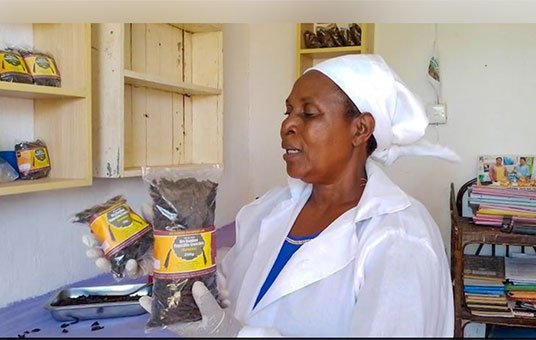Once a ceremonial dish for the Bagisu people of eastern Uganda, malewa dried and smoked bamboo shoots has grown from humble mountain roots into an East African staple now finding its way to European markets. What was once food for rituals has become a symbol of cultural pride, women’s resilience, and regional unity.
On the slopes of Mount Elgon, women harvest bamboo shoots that are carefully smoked, dried, and packed before traveling across borders. From Kampala to Nairobi, Kigali to Dar es Salaam, malewa is no longer confined to tradition; it has become a taste of East African identity, linking communities through shared flavor and heritage. Its smoky aroma carries more than just taste it carries stories of survival, celebration, and connection.
Women stand at the heart of this transformation. They climb mountains, brave rain and loose soils, and turn their knowledge of bamboo into livelihoods. Their collective effort not only sustains households but also powers exports that now reach Earth Markets in Germany, France, and Italy. In doing so, they have turned indigenous food knowledge into economic strength, branding and packaging malewa for supermarkets, restaurants, and international shelves.
Malewa’s rise also reflects the benefits of regional integration. Policies under the East African Community and trade initiatives like the African Continental Free Trade Area have reduced barriers, opening new doors for small-scale traders many of them women. What once was carried in baskets across borders now travels with official recognition, lower tariffs, and greater demand.
Even in tourism, malewa has found its place. Five-star hotels in Uganda serve it as part of cultural dining experiences, offering visitors not just a meal but a story rooted in history. For international guests, tasting malewa is more than a culinary adventure; it’s an introduction to Uganda’s cultural and ecological heritage.
Challenges remain, from the risks of harvesting in fragile mountain ecosystems to limited success in cultivating bamboo outside its natural habitat. Yet, with government policies like Buy Uganda Build Uganda (BUBU) and international support, there is momentum to protect, research, and expand this unique food source.
In the end, malewa is more than a dish. It is a story of women’s labor, cultural survival, and Africa’s power to share its traditions with the world. From mountain slopes to global markets, it carries a simple but powerful message: Africa’s borders are not barriers they are bridges.
